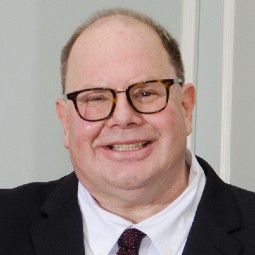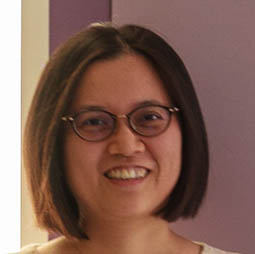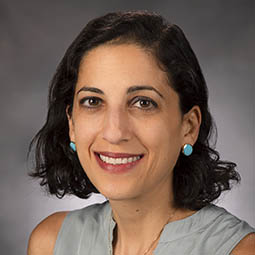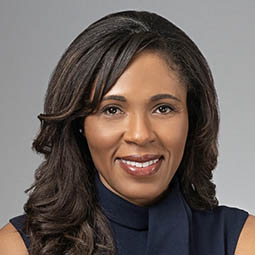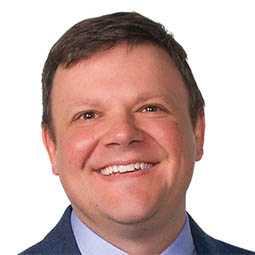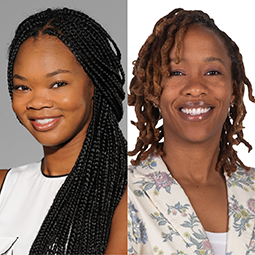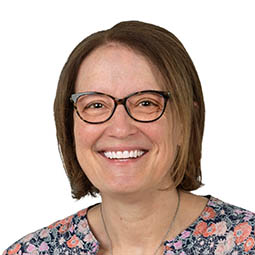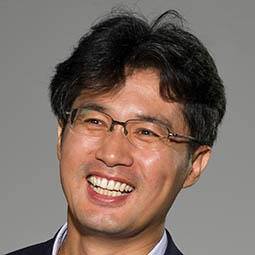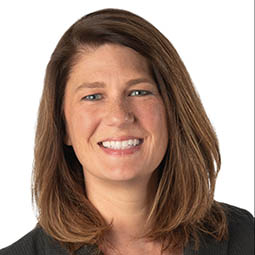Meet Ph.D. alumni and faculty
Our graduates represent the next generation of researchers, scholars and educators. Our faculty teach, challenge and mentor their future colleagues.
What can you do with a Ph.D. in social work from VCU, and who are some of the faculty members you might encounter who will help shape your experience? We want you to meet some of our exemplars.
Featured alumni
Dr. Bricout is a 1998 Ph.D. graduate and professor and director of research, University of Minnesota School of Social Work.
Working with top scholars helped shape Dr. Bricout’s VCU experience and expanded his research lens. Focusing on employment and community participation on the capabilities and human rights of people with disabilities, he found interdisciplinary mentoring “invaluable.”
“I had the opportunity to learn from experts in the School of Social Work, the Rehabilitation Research and Training Center, and the Department of Physical Medicine and Rehabilitation,” he says. “Those mentors continued to stay in touch with me and enrich my development as a scholar and researcher long after I left VCU, continuing to this day.
“The school provided a rich learning environment that included peer learning from other doctoral students, adjunct teaching experience and opportunities to participate in community-engaged research. This all contributed to my professional foundation as a social work academic with a learning 'growth' mindset that has benefitted me along the course of my career.
“VCU has always been a thought leader and innovator in terms of education, research and scholarship. The focus on learning, inclusive or mentoring, teaching and advising is palpable in the impact on graduates who are so well prepared for their post-doctoral roles, and who continue to enjoy the benefits of long-lasting professional relationships and collaborations with mentors who become valued colleagues wherever you go.”
In Spring 2022, he was named the program’s Making a Difference Alumni Award winner.
Dr. Chen is a 2009 Ph.D. graduate and is associate professor at the Graduate Institute of Social Work, National Taiwan Normal University.
There were two degrees of separation to Dr. Chen’s initial connection to VCU, but her time in the doctoral program ultimately forged close-knit relationships. Her graduate advisor, inspired by his own teacher who was a VCU graduate, recommended the doctoral program.
“I really appreciate his suggestion and believe I made a life-changing decision,” she says.
She became comfortable by being matched with an advisor and senior-level Ph.D. student who shared her research interest, “creating a natural environment for me to discuss my concerns and ask relevant questions.
“Doctoral students have more interactions with their cohorts and instructors, which creates a relatively close relationship. Professors hold high expectations and will provide critical feedback to assist students in becoming independent scholars. I learned a lot through receiving critical feedback from my peers and professors … (and) have applied this approach in my mentoring activities.
“I believe the VCU School of Social Work will be ideal for applicants looking for rigorous doctoral training and a supportive community where they can work together to make the world a better place.”
Dr. Khoury is a 2016 Ph.D. graduate and is a behavioral health scientist, Research Triangle Institute International.
The Ph.D. Program prepared Dr. Khoury through myriad opportunities that led to long-lasting connections.
“What I found to be the most impactful about my experience were all the research opportunities I was afforded throughout my tenure in the program,” she says. “These included opportunities to publish through my assistantship, opportunities to conduct research through independent study, as well as publications resulting from my dissertation.”
Faculty shared the benefits of different career trajectories and helped her build networks that supported her postdoctoral and job searches.
“Across the board, the faculty in the doctoral program at the School of Social Work is phenomenal. The quality of the mentorship I received – not only from my advisor, but also from other faculty members through assistantships and independent studies – was fantastic, and helped me narrow down my research and career interests to racial/ethnic disparities in access to mental health services. Six years later, I am still in touch with several of the faculty.”
Dr. Wonnum is a 2014 Ph.D. graduate and is a program official, National Institute on Minority Health and Health Disparities.
Mentoring was a key component of Dr. Wonnum’s experience in the doctoral program.
“The most impactful and enduring aspects of my experience were the instruction and mentoring I received from several of the most accomplished and compassionate social work scholars in graduate education. The relationships I built with them and the knowledge they imparted have anchored me in my scholarship and propelled me along my professional path.
“Under the tutelage and continued mentorship of my academic advisor and dissertation chair, I refined my area of study to child behavioral health policy, with focuses on health care access, quality, equity and workforce development.”
For prospective students considering the doctoral program, she says it’s a fit “for any potential scholar that seeks both a well-grounded and robust education in research and pedagogy and their applications across the micro-to-macro spectrum of social work. This program will undoubtedly buttress the success of your career, and the relationships you build will be genuine, impactful and long-lasting.”
Dr. Bogenschutz is an associate professor
To understand Dr. Bogenschutz's work, you have to understand where he came from.
Growing up, he lived at a summer camp for children with disabilities, run by his parents, where he learned from a very early age about the power of inclusion and the importance of belonging. Those lessons from his childhood have informed every aspect of his career, including his work at VCU.
Dr. Bogenschutz currently dedicates his research to helping make policies and services more responsive to the needs of people with intellectual and developmental disabilities and their families. Along with colleagues from VCU's Partnership for People with Disabilities, Dr. Bogenschutz works on federally funded research to understand how Medicaid expenditures predict health and social outcomes for people with intellectual and developmental disabilities.
He also serves as director of the Virginia Leadership Education in Neurodevelopmental and Related Disabilities program (Va-LEND).
"Data-informed policymaking is critical if we want to help people with disabilities live fulfilling lives as full partners in their communities. I hope our research plays a role in creating inclusive communities for people with disabilities to live, work and play."
Dr. Bogenschutz brings his experience to the classroom, where he shares his passion for policy with students who want to make progress toward a more just and equitable society.
- Learn more about Dr. Bogenschutz
Drs. Cage and Corley are both assistant professors.
Drs. Cage and Corley are part of an interdisciplinary team of VCU researchers focused on disrupting criminalization in education. They explore how the criminalization of trauma and exclusionary discipline are used as barriers to educational excellence among Black and Latinx children.
The two are co-investigators of the team’s federally funded project, “Disrupting the Trauma-to-Prison Pipeline for Girls in Virginia.” The team:
- Introduced new prevention programming into state detention and community-based diversion facilities
- Implemented trauma-to-prison pipeline training for juvenile justice staff in Virginia
- Improved community resources in high-poverty areas
“The criminalization of trauma experienced by Black girls contributes to their disproportionate involvement in the juvenile justice system,” Dr. Cage says. “Black girls experience trauma at the individual, system and community/structural levels. We aim to disrupt their experiences with trauma and the ways that such trauma is criminalized.”
Among their research interests are adolescent and youth development, child welfare, and race and ethnicity (Dr. Cage); and Black student achievement, Black mother-centered households and anti-oppressive social work practice (Dr. Corley).
- Learn more about Dr. Cage
- Learn more about Dr. Corley
Dr. Chartier is an associate professor.
Family history is a strong indicator of alcohol use disorder (AUD), but Dr. Chartier cautions that “genes are not our destiny."
Instead, she explores the intersecting impact of environmental conditions with genetics, including a study published in the journal Addictive Behaviors and supported by funding from two National Institutes of Health programs.
“I am interested in identifying environmental conditions that either increase risk or are protective for individuals who we already know are high-risk for alcohol problems because of their family histories,” she says. In particular, the study focused on the availability of alcohol in liquor and convenience stores and the influence of living in areas with greater religious opposition to drinking.
“We know that people's behaviors are impacted by opportunities and constraints tied to the places where they live," Dr. Chartier says. ”As it relates to alcohol consumption, important place-based characteristics include the number of stores where alcohol can be purchased as well as the community norms for how much is considered acceptable for someone to drink.”
Because of the prevalence of the disorder – nearly 15 million people in the U.S. had an AUD according to 2019 data – coupled with a low incidence of treatment (7% of those affected), “individuals with alcohol problems are seen in many of the population groups and the systems where social workers find themselves,” she says.
“I think many social work faculty are drawn to issues that have affected their lives or those of their family members. To conduct these studies, it's important to have good data analysis skills and collaborators in other disciplines who have different skill sets and knowledge bases. It is one of the things I love about this type of research – I get to exchange ideas, continually learn and collaborate with great people.”
- Learn more about Dr. Chartier
Dr. Kim is an assistant professor.
Dr. Kim’s research focuses on aging and mental health, and his article published in Psychiatric Services explored the intersection of older African Americans and their mental health care.
In U.S. counties where there is a higher population of Black residents, those 60 and older were less likely to get mental health treatment, he found.
The study posits older African American adults are more likely to live in disadvantaged areas with limited access to mental health care, possibly resulting in lower service utilization; and they may have a distrust of medical professionals because of discrimination. Also, mental health professionals may avoid providing services in neighborhoods with lower socioeconomic status.
“We know that racial and ethnic disparities in mental health and mental health care exist. Particularly, older African Americans have been historically discriminated against in the labor and housing market. As a result, they were less likely to get quality mental health care.”
Dr. Kim’s work has been recognized by the Gerontological Society of America, which awarded him the 2021 Carroll Estates Rising Star Award for his outstanding early career contributions in social research, policy and practice; and by the Society for Social Work and Research with an Excellence in Research Award-Honorable Mention in 2020 that he shared with two colleagues for a study published in Gerontologist on older adults who age in place in gentrifying neighborhoods.
- Learn more about Dr. Kim
Dr. Wike is an associate professor.
Dr. Wike’s research interests and connections with students in the school’s doctoral program are deeply personal.
“I’ve always been interested in interpersonal relationships and group social dynamics,” she says. “My social work practice experiences working with children who have witnessed violence and then, later, supporting LGBTQ+ youth in a university setting helped shape my understanding of how interpersonal violence – particularly peer-related victimization, such as bullying – affects how young people develop socially and the consequences that can have on other aspects of their lives.”
Her current work centers on LGBTQ+ youth in rural areas of the Southeast, types of victimization they may experience and strengths they bring in building community and supporting one another.
“As an LGBTQ+ person raised in a rural community, I want to uplift and support the voices of rural youth who aren’t always represented in research studies, and also dispel the notion that LGBTQ+ youth have to leave their rural communities to find support and belonging.”
Dr. Wike has worked closely with Ph.D. students since she started at VCU in 2011.
“It continues to be a highlight of my faculty career,” she says. “Doctoral students bring exciting, fresh ideas and contribute so much to the research that is being conducted at the school.
"Because doctoral students typically spend at least four years in the program, the relationships that we develop and the collaborations that we build do not end when a student graduates, but extend well into their careers. Being part of someone’s journey from unsure student to confident scholar and knowing that they represent the next generation of social work researchers is thrilling.”
- Learn more about Dr. Wike
